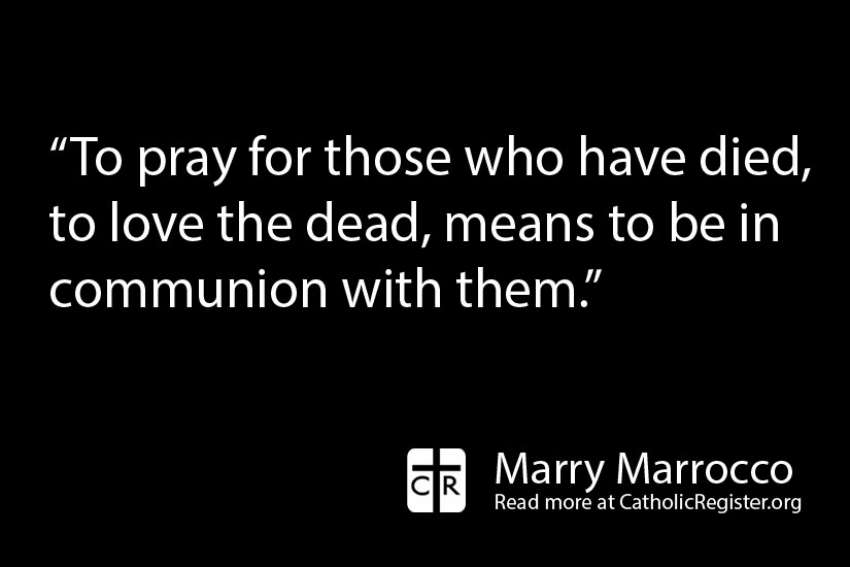We meet many people in life, but a true connection is a rare and precious thing. I knew in advance that precious rarity was awaiting me at the coffee shop.
As in every conversation between us, John told me: “I pray for Bobby every day.” Neither of us took these words lightly. He was one of the people I turned to after the November night when my nephew Robert took his life, three days after his 25th birthday. John never met Bobby in life. Still he held him in his heart, a heart of great depth and beauty, the kind that can get carved out by immense suffering.
Whatever depths Bobby went to, those who loved him went also, and can never really come back. Either those dark depths are the end of all things, or they themselves can be transformed and transcended. This is where faith is born.
The faith of the Christian church is built on this: that Christ descended from the cross into death, and was raised up, to raise up Adam and Eve, woman and man. On this truth rests all we are and believe.
“If we have hoped in Christ in this life only, we are of all people most to be pitied” (1 Cor 15:19). But if Christ raised the “first fruits of those who are asleep” (v.20), then Christ’s story is also Bobby’s story.
His family has continually, in the endless months, hours, minutes since that November night, echoed this back to me.
The “story” Christianity tells is, as John said once, not a cure for anything but health itself. Like health and sickness, it penetrates to our marrow, touching all aspects of us. It can’t be “mere” words. It can’t be just a perspective. It’s “not a sudden illumination but a path through the darkness of the world,” to quote John again.
A lifelong sufferer from depression, John knew that thoughts of suicide are never far from the mind of a depressed person. He spoke of depression as a seductive narrative, the story that tells us our lives are worthless and the most we can expect is “a little pleasure and a lot of suffering.”
Suicide becomes a logical conclusion — rather than the horrendous tearing in the fabric of the universe we have experienced it to be.
Can there be a path through such darkness? For Bobby, for his family, for any of us? The response to this question becomes the creative work of our lives; not a theoretical response, but a daily one, that costs everything.
A few short weeks after that coffee date, I learned with astonishment that John had died. Instantly I glimpsed a meeting, an embrace, between Bobby and John.
John Mays’ death was sudden. He was in the midst of an engaged life, having just completed the book he’d been working on, and it happened while out walking with a friend. The last thing he said to me (just before “I’m sorry I have to go”) was this: “I find all my ambitions, my projects, falling away. All I really want to do is pray, and love.”
He always struck me as a person who knew how to do both. His love of prayer, especially the office (the liturgy of the hours — the daily morning, evening and night prayers of the Church), led to his establishing a group that regularly prays the office and has talks and fellowship.
His love of people was, in my observation, concrete and simple. I recall him listening to a mutual friend, who was lamenting the endangerment of a little Ontario wildflower known as the “bashful bulrush.” John encouraged our friend to speak and write about the little native plant, and let his passion be heard, almost as though he himself were a bashful bulrush John was nurturing.
To pray for those who have died, to love the dead, means to be in communion with them. It means staying in relationship with them, even in things that are unresolved, at least for now — the prematurity of John’s death, the heart-rending anguish of Bobby’s. It also means continuing to receive from them: the gift of their unique being, the personal presence in Christ of their love for us, the depth of relationship.
It’s risky, staying in relationship with those who have died. It comes not without pain, for we live also their absence, separated from them by a bewildering and painful abyss that at times seems relentless and cruel.
To quote John yet again: “believing love’s story does not end the pain.”
As his own life witnessed (and in keeping with his work as a writer on art and architecture), pain doesn’t trump love. It somehow gets woven into love and becomes part of the beauty.
(Marrocco can be reached at marrocco7@sympatico.ca.)


